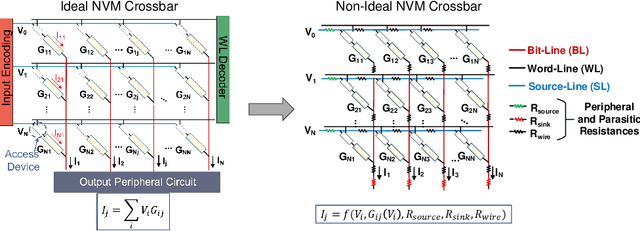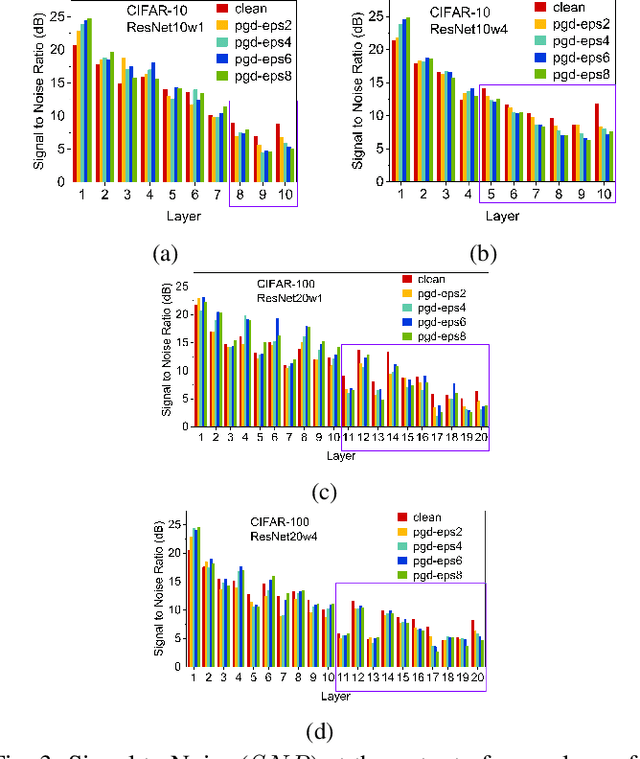On the Noise Stability and Robustness of Adversarially Trained Networks on NVM Crossbars
Paper and Code
Sep 19, 2021



Applications based on Deep Neural Networks (DNNs) have grown exponentially in the past decade. To match their increasing computational needs, several Non-Volatile Memory (NVM) crossbar-based accelerators have been proposed. Apart from improved energy efficiency and performance, these approximate hardware also possess intrinsic robustness for defense against Adversarial Attacks, which is an important security concern for DNNs. Prior works have focused on quantifying this intrinsic robustness for vanilla networks, that is DNNs trained on unperturbed inputs. However, adversarial training of DNNs is the benchmark technique for robustness, and sole reliance on intrinsic robustness of the hardware may not be sufficient. In this work, we explore the design of robust DNNs through the amalgamation of adversarial training and the intrinsic robustness offered by NVM crossbar-based analog hardware. First, we study the noise stability of such networks on unperturbed inputs and observe that internal activations of adversarially trained networks have lower Signal-to-Noise Ratio (SNR), and are sensitive to noise than vanilla networks. As a result, they suffer significantly higher performance degradation due to the non-ideal computations; on an average 2x accuracy drop. On the other hand, for adversarial images generated using Projected-Gradient-Descent (PGD) White-Box attacks, ResNet-10/20 adversarially trained on CIFAR-10/100 display a 5-10% gain in robust accuracy due to the underlying NVM crossbar when the attack epsilon ($\epsilon_{attack}$, the degree of input perturbations) is greater than the epsilon of the adversarial training ($\epsilon_{train}$). Our results indicate that implementing adversarially trained networks on analog hardware requires careful calibration between hardware non-idealities and $\epsilon_{train}$ to achieve optimum robustness and performance.
 Add to Chrome
Add to Chrome Add to Firefox
Add to Firefox Add to Edge
Add to Edge